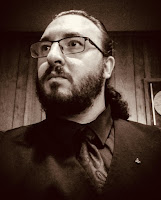 |
| The Met |
It’s almost time for The Magic Flute, Mozart’s Masonic opera, to return to The Met for its annual run. I promote this production every season both here on The Magpie and in my travels, but I never hear of Masons or lodges attending the show. As far as I can tell, the ticket price here is the only cost in New York City that hasn’t budged in years, but I digress. From the publicity:
 |
| The Met |
World Premiere: Freihaus-Theater auf der Wieden, Vienna, 1791. A sublime fairy tale that moves freely between earthy comedy and noble mysticism, The Magic Flute (Die Zauberflöte in the original German) was written for a theater located just outside Vienna with the clear intention of appealing to audiences from all walks of life. The story is told in a singspiel (“song-play”) format characterized by separate musical numbers connected by dialogue and stage activity, an excellent structure for navigating the diverse moods, ranging from solemn to lighthearted, of the story and score.
 |
| The Met |
Wolfgang Amadeus Mozart (1756-91) was the son of a Salzburg court musician who exhibited him as a musical prodigy throughout Europe. His achievements in opera, in terms of beauty, vocal challenge, and dramatic insight, remain unsurpassed. He died three months after the premiere of Die Zauberflöte, his last produced work for the stage. The remarkable Emanuel Schikaneder (1751-1812) was an actor, singer, theater manager, and friend of Mozart who wrote the opera’s libretto, staged the work, and sang the role of Papageno in the initial run.
 |
| The Met |
Mozart and his librettist, Emanuel Schikaneder, created The Magic Flute with an eye toward a popular audience, but the varied tone of the work requires singers who can specialize in several different musical genres. The baritone Papageno represents the comic and earthy, the tenor Tamino and the soprano Pamina display true love in its noblest forms, the bass Sarastro expresses the solemn and the transcendental, and the Queen of the Night provides explosive vocal fireworks.



















































































